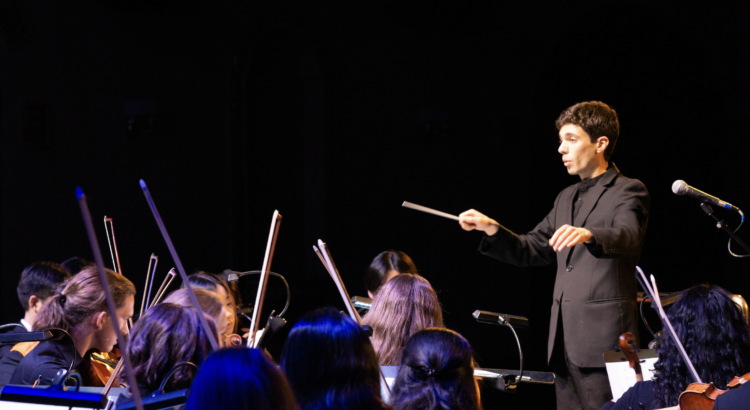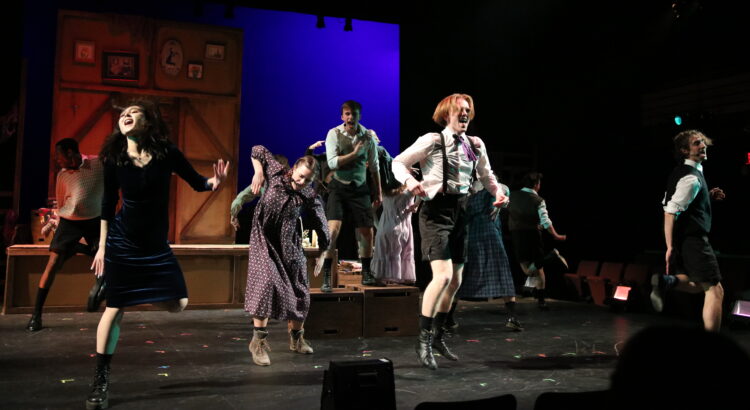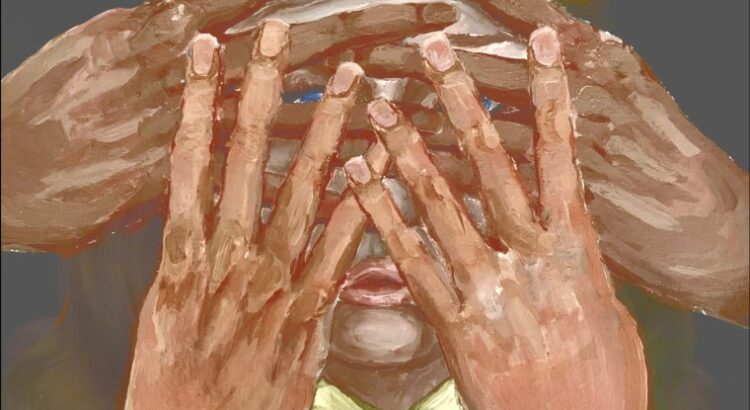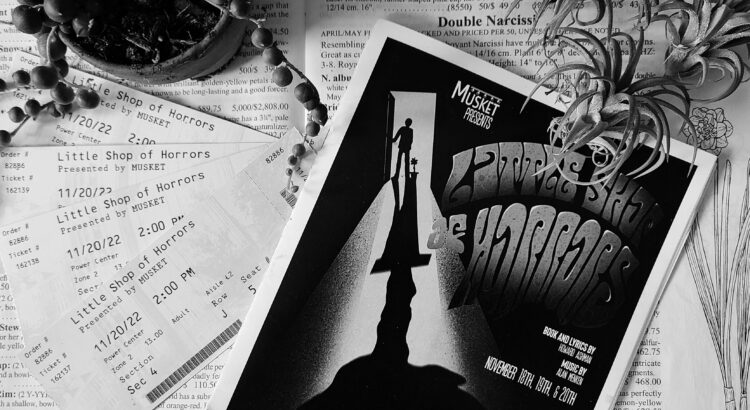2:00pm • Sunday, November 20, 2022 • Power Center
I’m so glad I had the opportunity to experience Little Shop of Horrors, presented at the Power Center this weekend by MUSKET. The performance began before the lights dimmed, as Chiffon (Arin Francis), Crystal (Maya Mcentyre), and Ronnette (Gilayah McIntosh) wandered the auditorium, interacting with the crowd. Eventually they disappeared backstage, only to reappear along with the rest of the cast, to open the performance with “Skid Row.” From that point onward I was continually impressed by the talent and personality of each actor. Forming the chorus, Francis, Mcentyre, and McIntosh were reliable throughout their performance both for their solid harmonies and for their affectionately eye-rolling reactions to Seymore and Audrey. In addition to his role as Orin Scrivello, Audrey’s abusive boyfriend, Caleb McArthur scrambled onstage in at least four other mini-roles, creating fresh personas for each. I appreciated the way that Michael Fabisch threw himself into the awkwardness required for the role of Seymore. And Mr. Mushnik, played by Dylan Bernstein, was a perfect drama queen.
My favorite human role was definitely Audrey, played by Mackenzie Mollison. In the beginning of the show, Audrey is trapped in an abusive relationship with a sadistic dentist, and while in “Somewhere that’s Green” she dreams of living a simple life in a suburban development, she doesn’t believe she deserves to be loved by someone kind. Mollison brought humor to the role with her excellent comedic timing without oversimplifying the show’s darker themes of abuse and self-hatred. Her powerful voice seemed subtly restrained throughout the performance to reflect Audrey’s situation: occasionally bursting out in full spirit but quickly stifled again.
The shameless Audrey II, however, voiced by Morgan Gomes, resisted all restraints. Gomes, while only appearing onstage in person for the final curtain call, defined the performance with her spectacular voice. The plant only begins speaking mid-way through the performance, but when Gomes’ voice finally echoed through the theater, I saw jaws drop.
Engineering the evil plant itself is notoriously difficult, and MUSKET pulled it off with humor and style. In its first form, the Audrey II was a single, tentacle-like shoot with a little flower at the tip that Seymore slung around the shop during “Grow for Me.” Upon the plant’s entrance, I figured this first edition was too small for the team to have bothered animating–but to my surprise, in response to the characters’ lines, it drooped, perked up, and even nodded, all without any visible assistance or puppeteering from onstage. As Audrey II continued to grow throughout the show, I never noticed the stage crew replacing it or making adjustments, which is doubly impressive for such a large and mobile prop. The choice to have Audrey II consume its prey by sucking them into its stem resulted in some entertaining visuals: because the shape of the plant was vaguely humanoid, we seemed to watch Orin, Mr. Mushnik, Audrey, and finally Seymore disappear between the plant-being’s “legs.”
Overall, a big congratulations to everyone involved in putting together this fun rendition of Little Shop of Horrors. I encourage everyone who missed the performance to consider buying tickets to MUSKET’s winter semester show, A Chorus Line. I can guarantee that I will be in the audience.








